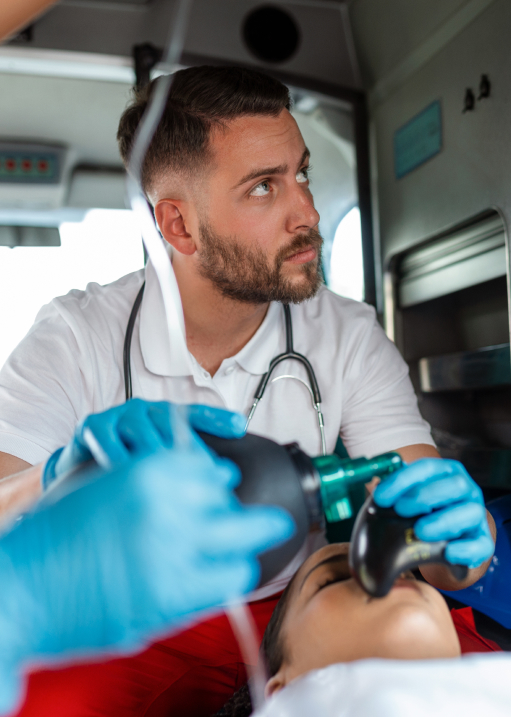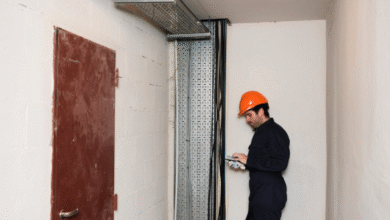
Emergencies can happen at any time, often without warning. When faced with a medical emergency, quick access to professional medical help can make all the difference. This is where a 24 Hours Ambulance Service plays a crucial role, offering rapid response and specialized care around the clock. Whether you are in Abu Dhabi or anywhere else, knowing what to expect when you call an ambulance service can ease your worries and prepare you for the situation.
This blog will guide you through the entire process — from the moment you place the call to when the ambulance arrives and provides care. We will also cover important aspects such as the types of services offered, the role of emergency medical technicians, and how to communicate effectively during your emergency call. Additionally, you will learn about the significance of services like اسعاف ابو ظبي for residents and visitors in the UAE.
Understanding the Role of a 24 Hours Ambulance Service
A 24 Hours Ambulance Service is designed to provide emergency medical care and transport patients to hospitals or specialized care centers at any time, day or night. Unlike regular ambulance services that may operate during specific hours, a 24-hour service ensures availability whenever a critical situation arises.
These services are equipped with state-of-the-art medical equipment and staffed by trained paramedics and emergency medical technicians (EMTs) who are capable of handling a wide range of emergencies. Their objective is to stabilize patients on-site and during transportation, increasing the chances of survival and better health outcomes.
In regions like Abu Dhabi, اسعاف ابو ظبي services are a vital part of the healthcare infrastructure, addressing the needs of both residents and tourists in urgent medical scenarios.
When to Call a 24 Hours Ambulance Service
Recognizing when to call an ambulance can sometimes be confusing. However, there are clear signs and situations where immediate ambulance intervention is necessary:
- Severe chest pain or symptoms of a heart attack
- Difficulty breathing or respiratory distress
- Loss of consciousness or unresponsiveness
- Severe bleeding that cannot be controlled
- Major trauma or accidents such as falls, road accidents, or burns
- Stroke symptoms, such as weakness on one side of the body, slurred speech, or confusion
- Sudden severe headache or seizures
- Severe allergic reactions causing swelling or breathing difficulty
In any of these cases, calling a 24 Hours Ambulance Service can save precious minutes, providing swift medical attention and transport to a hospital.
What Happens When You Make the Call?
When you dial the emergency number or the contact for a 24 Hours Ambulance Service, the experience usually follows a structured process to ensure that help is dispatched efficiently:
1. Call Reception
Your call is first answered by an emergency dispatcher or operator. They are trained to handle stressful situations calmly and will ask you specific questions to assess the severity of the emergency. Expect questions such as:
- What is the nature of the emergency?
- What is the exact location?
- Are there any injuries or medical conditions involved?
- How many people need help?
- Is the patient conscious and breathing?
Providing clear, accurate answers helps the dispatcher send the right type of ambulance and medical team.
2. Assessment and Prioritization
Based on the information you provide, the dispatcher prioritizes the emergency. Life-threatening cases are given immediate attention and are dispatched the nearest available ambulance with advanced life support capabilities.
3. Dispatching the Ambulance
Once the emergency is assessed, the ambulance team is alerted, and the vehicle is dispatched. Modern ambulance services use GPS tracking to identify the fastest route to your location. In some cases, the dispatcher might stay on the phone to provide you with first aid instructions until help arrives.
What to Do While Waiting for the Ambulance
Once you have called the 24 Hours Ambulance Service, the minutes waiting for the ambulance can be crucial. Here are some steps you can take:
- Stay calm and try to keep the patient calm.
- If trained, provide basic first aid or CPR if necessary and safe.
- Clear the area around the patient to ensure easy access for emergency responders.
- Make sure doors and gates are unlocked and pathways are clear.
- Gather important medical information about the patient, such as allergies, medications, or previous medical history, to share with the paramedics.
Being prepared and cooperative can speed up the treatment process once the ambulance arrives.
Arrival of the Ambulance: What to Expect
When the ambulance arrives, it will typically be staffed by a team including paramedics and EMTs equipped with specialized gear to provide immediate medical care. Here’s what usually happens:
1. Initial Assessment
The ambulance team will quickly assess the patient’s condition to understand the severity and required treatment. They check vital signs such as pulse, blood pressure, breathing, and level of consciousness.
2. Emergency Care
Based on the assessment, the team may administer oxygen, stop bleeding, immobilize injuries, provide medications, or start CPR if needed. Their goal is to stabilize the patient for safe transportation.
3. Communication with Hospital
The paramedics communicate with the receiving hospital, giving a detailed report of the patient’s condition and treatment administered. This ensures that the hospital is prepared for the patient’s arrival.
4. Transport to Medical Facility
Once stabilized, the patient is carefully moved into the ambulance for transport. During the journey, the paramedics continue monitoring and managing the patient’s condition, ready to respond to any changes.
Types of Ambulance Services You May Encounter
24 Hours Ambulance Service offerings can vary depending on the provider and region, but common types include:
- Basic Life Support (BLS): For non-critical patients who require basic medical assistance during transport.
- Advanced Life Support (ALS): For critically ill or injured patients, staffed by paramedics with advanced training and equipment such as defibrillators, ventilators, and intravenous medications.
- Neonatal and Pediatric Ambulance: Specialized ambulances equipped to handle newborns and children with appropriate medical staff.
- Patient Transfer Ambulance: For transferring patients between hospitals or healthcare facilities when medical support is needed during the move.
In places like Abu Dhabi, اسعاف ابو ظبي offers comprehensive ambulance services tailored to meet diverse emergency needs.
Cost and Payment Expectations
Many people wonder about the cost when they call a 24 Hours Ambulance Service. The cost can vary widely based on factors such as:
- The level of medical care required
- Distance traveled
- Additional services such as life support or specialized care
In some countries, emergency ambulance services are covered by government health programs or insurance. In the UAE, the cost might be included in health insurance plans or covered by public services, but it’s important to check in advance if you have a preferred provider.
Importance of Professional Ambulance Services in Abu Dhabi
Abu Dhabi has a well-developed emergency medical system where اسعاف ابو ظبي plays a critical role. These ambulance services not only respond rapidly but also provide culturally sensitive care and multilingual support, which is important in a diverse community.
Their 24-hour availability ensures that residents, workers, and visitors can receive timely medical attention no matter the hour. With ongoing advancements in emergency medical technology and training, ambulance teams in Abu Dhabi maintain high standards of patient care.
Tips for Using a 24-Hour Ambulance Service
To make the most of a 24 Hours Ambulance Service in an emergency, keep these tips in mind:
- Save the emergency ambulance number on your phone for quick access.
- Know your exact location or landmark details to guide responders quickly.
- Stay calm and listen carefully to the dispatcher’s instructions.
- Provide all necessary information clearly, including patient details and symptoms.
- Follow the first aid advice given until help arrives.
- If you are a bystander, avoid crowding the patient to allow paramedics to work efficiently.
- Inform the hospital or family members if possible.
Common Myths About Ambulance Services
There are some myths about ambulance services that may cause hesitation in calling them:
- Myth: Ambulances take too long to arrive.
Reality: 24-hour ambulance services aim to reach patients as quickly as possible, with prioritization of critical cases. - Myth: Ambulance rides are very expensive and should be avoided.
Reality: In true emergencies, calling an ambulance can save lives and is often covered by insurance or government services. - Myth: You can drive to the hospital faster than an ambulance.
Reality: Ambulances have medical staff who provide care en route and can navigate traffic with priority, often saving time and improving outcomes.
The Future of Ambulance Services
Advances in technology are transforming 24 Hours Ambulance Service capabilities. Innovations include telemedicine support, where paramedics can consult with doctors remotely, and improved GPS tracking for faster response times.
In Abu Dhabi and globally, services like اسعاف ابو ظبي are increasingly adopting smart systems that integrate ambulances with hospital networks for seamless emergency care. This progress promises even better patient experiences and outcomes in the future.
Final Thoughts
Calling a 24 Hours Ambulance Service during a medical emergency can be an overwhelming experience, but understanding what to expect can help you stay calm and act efficiently. From the initial call to the arrival of trained paramedics and transport to a healthcare facility, the process is designed to provide you or your loved one with the best possible care as quickly as possible.
If you live in or visit Abu Dhabi, knowing about اسعاف ابو ظبي and how to access it could save lives. Always prioritize safety, clear communication, and following instructions during an emergency. Remember, professional ambulance services are there to support you 24/7, ensuring medical help is never far away when you need it most.




